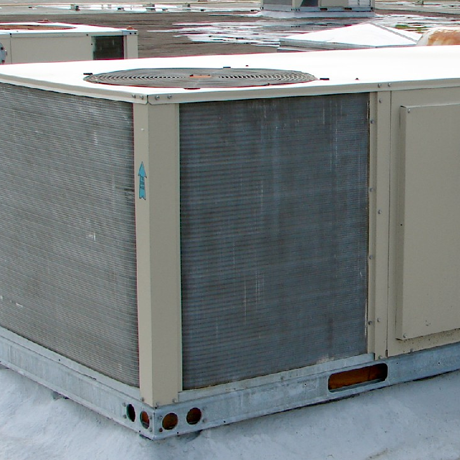
Energy costs are spiraling out of our control, again, and it's time to pray to the technology gods for relief. There are answers, of course, with newer environmentally friendly air conditioning systems lowering energy costs whenever possible. Throw in the new smart thermostats that are currently arriving on the market and we even have a fighting chance of justifying an AC system's usage during our energy-scrimping days. But summers are long, while pockets full of cash are getting shorter. An inverter air conditioner suddenly becomes a viable alternative in this scenario. Let's descend into the world of air conditioning inversion and see how they function.
Contrary to the title, an inverter air conditioner does not run backwards or operate upsides down. The label, instead, refers to a superior performance pattern, one that focuses on the actual energy expenditure of the components within an AC system. The parts, especially the compressor assembly, spotlight energy reductions by eliminating the start and stop cycle that defines a standard air conditioning format. Imagine that standard operational form for a second, the crazily inefficient principle where a compressor starts when the climate is uncomfortably hot and stops when the air has cooled. Energy calculations state that greater amounts of electricity are required to take a stationary object up to speed, thus necessitating high current spikes every time the compressor starts. This obviously flawed operational methodology accounts for a sizeable chunk of used electricity, meaning a better manner of running the compressor is needed.
After so comprehensively illustrating the drawbacks of this start and stop usage pattern, it becomes easier to pinpoint the area where an AC system can improve, an area where the inverter version is excelling in at this moment. The abrupt starts are substituted in this model, removed by adopting a variable speed compressor. If the thermostat calls for cooling, the compressor and refrigerant content draw more power and accelerate to balance cooling requirements. It holds this high-performance level until the room is cooler, at which point the equipment slows and the refrigerant flow decreases.
The advantages of an inverter air conditioner include:
Currently more expensive to purchase than a standard air conditioning system, the inverter model is still arguably the better purchase due to the fact that it will bring greater energy savings over time. And in this energy-sensitive age we now live in, such savings make the inverter air conditioner a tempting alternative. Consider the purchase and look forward to a quieter, more wallet-friendly service, an appliance that could potentially bring 30-50 percent energy savings when compared with the cheaper alternative.
Phone: 1300 672 235
Operating Hour:
9:00am to 5:30pm (Mon-Fri)
Service areas - Suburbs
Email: subcool@bigpond.net.au
Optimized by NetwizardSEO.com.au